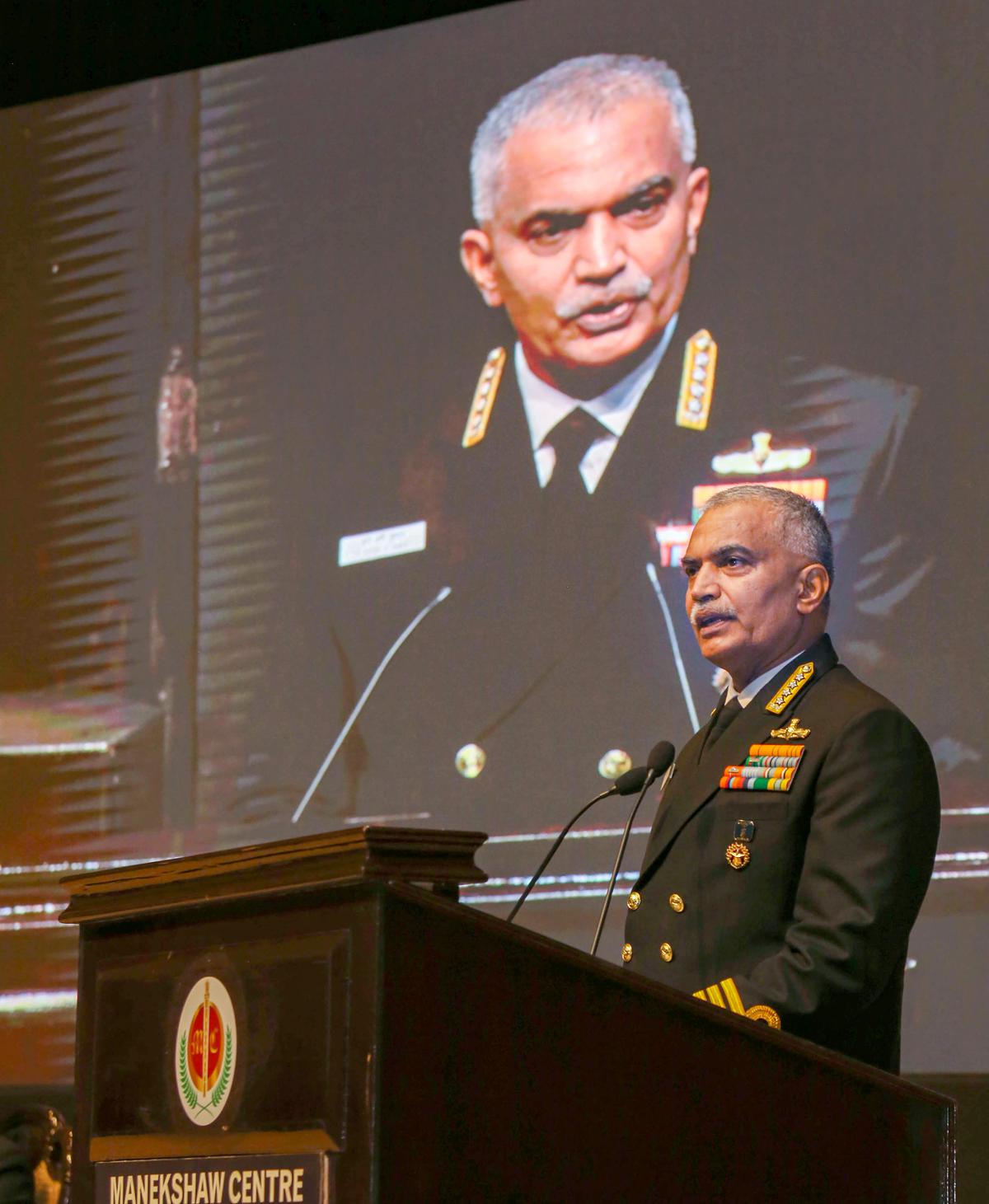
Increased risk to rules-based order from non-traditional threats: Navy Chief
The Hindu
Maritime terrorism and proliferation of advanced technologies have the security matrix complicated, says Admiral Hari Kumar
While we cannot rule out the possibility of conventional inter-state conflict, there is an increased risk to the rules-based order, which is emanating from disputes of jurisdiction, undermining of United National Convention on the Law of the Sea (UNCLOS), piracy and armed robbery, illegal human migration, drugs and arms trafficking, and Illegal Unreported and Unregulated (IUU) fishing, said Navy Chief Admiral R. Hari Kumar, talking about the security environment in general, and maritime security in particular. Maritime terrorism and proliferation of advanced technologies have the security matrix complicated.
“Inevitably, given its increased centrality in global affairs, the region has witnessed increased presence of maritime security forces from a multitude of nations — regional as well as extra-regional. It is amply clear that a prosperous Indo-Pacific hinges on a peaceful maritime domain,” Admiral Kumar said addressing the three-day Indo-Pacific regional dialogue being organised by the Navy and the National Maritime Foundation (NMF) which began on Wednesday.
“We want a democratic Indo-Pacific free from coercion,” said Pankaj Saran, Member, National Security Advisory Board and former Deputy National Security Adviser, while reiterating that the Association of South East Asian Nations (ASEAN) remained the central pillar of India’s Act East and Indo-Pacific policy. This is not a strategic construct or geography directed against anyone, he added, talking of India’s view of the Indo-Pacific policy.
Delivering the keynote address, Minister of State for Defence Ajay Bhatt said India was well prepared to address threats in the current and emerging maritime domain. He emphasised the need to build other aspects of India’s maritime capability, such as the merchant marine, ports, and the capability for sustainable management of the nation’s oceanic resources, in addition to bolstering military capabilities.
Mr. Bhatt also released a book titled, “Hard-Security Perspectives in India’s Maritime Neighbourhood”, published by the NMF.
Referring to the Indo-Pacific Oceans Initiative (IPOI), Admiral Kumar said it was not aimed at creating new institutions, but rather, seeks to leverage existing mechanisms by drawing convergences and identifying areas of mutual interest.
Speaking of regional cooperation and engagements, the Navy Chief said they focussed efforts on three fronts namely — to be the ‘Preferred Security Partner’, become the ‘First Responder’, and build on, what former Navy Chief Admiral Karambir Singh termed ‘Collective Maritime Competence’. “In pursuit of being a ‘Preferred Security Partner’, the Indian Navy aims at enhancing the region’s maritime security quotient, through sustained forward presence and preparedness for all maritime challenges,” he said, adding that the persistent presence also enabled them to be the ‘first responder’ in various situations, including natural disasters, critical incidents and medical emergencies.













